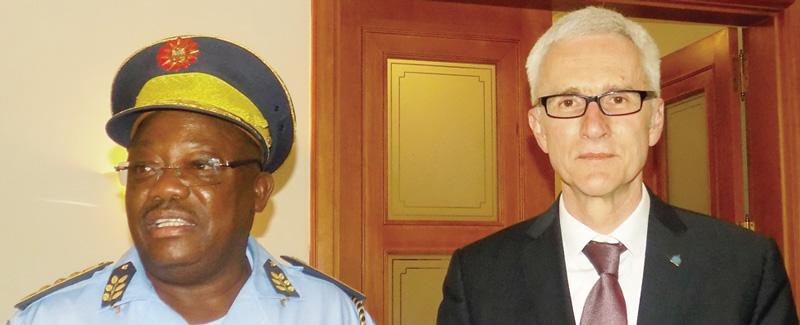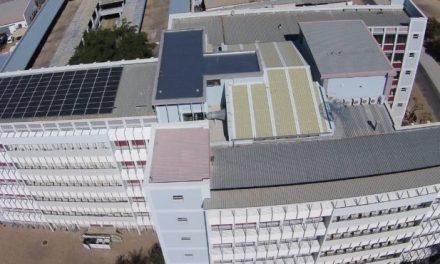
Namibian wildlife under threat from international poaching cartel

The Secretary General of Interpol, Jürgen Stock, during his courtesy visit for Namibia’s 26th Independence celebrations earlier this week held comprehensive dialogues with various ministers and dignitaries on criminal and safety issues of both international and local relevance.
The list of ministers included the Right Hon Prime Minister Saara Kuugongelwa-Amadhila, the Vice President, Hon Nicky Iyambo, the Minister of Safety and Security, Hon Charles Namholo and the Minister of Environment and Tourism, Hon Pohamba Shiveta.
Safety and security minister Namholo, in his address to the Interpol Secretary General raised a few issues and said “the drug cartel in South America is turning into a poaching cartel in southern Africa.” The minister further stressed that criminals have improved their techniques and Namibia needs to fight against them. Stock in response elaborated that Interpol has been notified that criminals have opened laboratories in southern Africa purely for their poaching activities.
Moving on, Stock elaborated saying criminals use the same criminal infrastructure with regard to smuggling techniques, routes and counterfeit documents. “We need to have global access to information on terrorism, organised crime and cybercrime, all of which are borderless issues.” He added that international criminals are taking advantage of globalisation.
The Minister of Environment and Tourism, Hon Shiveta echoed the same sentiments stating “Wildlife crime is high on our agenda as we are faced with organised and well-funded wildlife syndicates”. He confirmed that trafficking of wildlife has increased and Namibia can only achieve the elimination of these criminals with the help of Interpol as criminals look for weak points in international borders allowing them to traffic wildlife.
He also disclosed that Namibia keeps track of its wildlife through the use of DNA testing devices and can perform drug tests on smuggled products or animals to determine if they originate from Namibia. Local law enforcement agencies can even specify the region from which these animals or their products came. In response Stock explained that these issues will be incorporated into what is called “Interpol 2020”, a comprehensive dialogue framework that analyses issues raised by Interpol member countries and how resources can be allocated to help combat them.
Vice President Iyambo talked about the issue of adequate human resources in the police force. “There is a need to strengthen human resources in the police force, particularly in cybercrime, international terrorism and drug trafficking.” he said, further stating that cybercrime is a serious issue for a young country like Namibia as criminals use sophisticated technology [local] citizens have not mastered yet.
The Vice President also raised concerns that Namibia’s peaceful environment could be a suitable environment for terrorists to hibernate and run their operations from. “Namibia is conscious of the fact that Ambassadors and High Commissioners from other countries could become targets of terrorist attacks” he said.
It was further stressed that due to Namibia’s long borders with several neighbours, it is more susceptible to penetration by criminals and smuggling of illegal products.












































